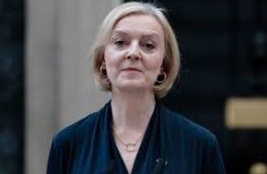
PM’s Plan to Implement Tax Cuts Sparks Debate with US President Joe Biden
Liz Truss, the Prime Minister of the UK, is expected to push for global tax reductions as part of her strategy to stimulate economic growth, in her upcoming speech at the United Nations. Truss’s approach to economic recovery aligns with her belief that the world must focus on boosting growth to prevent authoritarian regimes, like Russia, from influencing global economics.
Her proposal, however, puts her at odds with US President Joe Biden. While Truss advocates for tax cuts, Biden has openly criticised this strategy. On Tuesday, Biden expressed frustration with trickle-down economics, which he claims has never been effective.
In her recent speeches, Truss emphasized the need for the UK to overhaul its tax system, particularly corporate taxes, to stay competitive internationally. She has also promised to review all tax rates to support struggling households and businesses during the current cost of living crisis. Truss’s planned emergency mini-budget could see significant changes, including a reduction in stamp duty.
But what exactly is trickle-down economics, and where did this controversial term originate?
Trickle-down economics is similar to supply-side economics, a policy approach that is not defined by a single economic strategy but involves measures like tax cuts for the wealthy and corporations, as well as deregulation. The theory is based on the belief that wealth generated at the top will eventually benefit everyone, as the financial resources “trickle down” to the wider population.
Critics of trickle-down economics argue that it disproportionately favours the wealthy, leading to greater income inequality and failing to deliver the promised benefits to lower-income groups. Although proponents claim it stimulates economic growth by encouraging investment, many economists argue that cutting taxes for the wealthiest results in increased savings or overseas investments, rather than reinvestment into the economy.
The term “trickle-down economics” originated as a satirical comment by humourist Will Rogers, who mocked President Herbert Hoover’s recovery efforts during the Great Depression, saying the government was appropriating money to the top in the hope it would “trickle down” to the poor. Today, it is often used pejoratively to criticise policies that benefit the wealthy while claiming to support the general populace.











